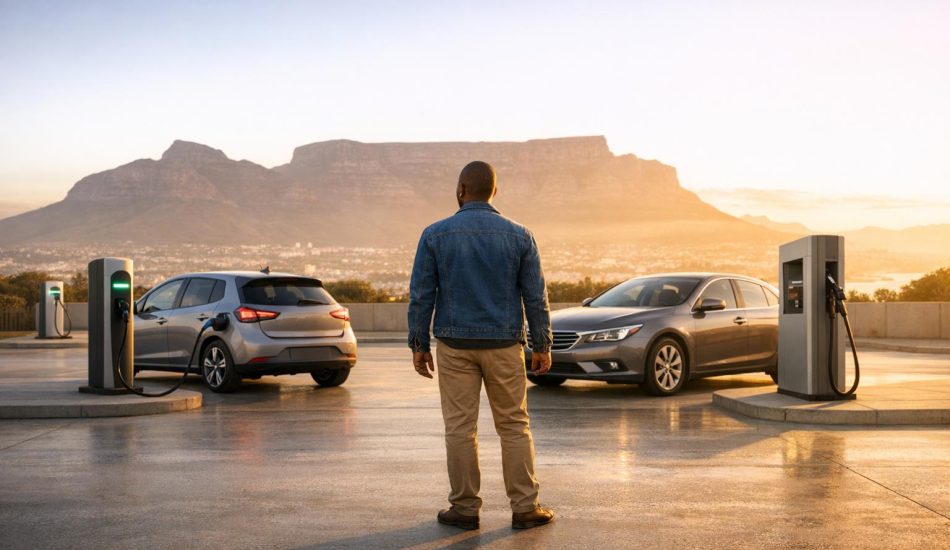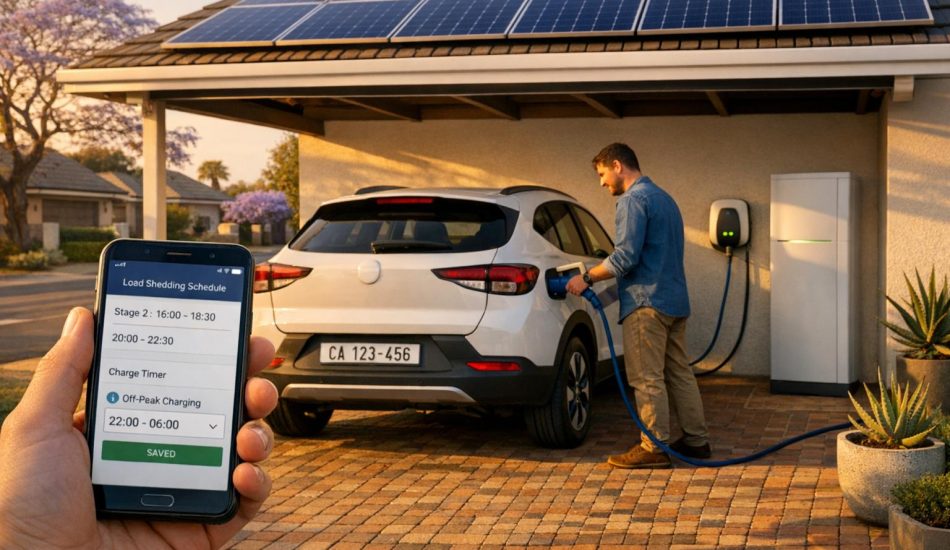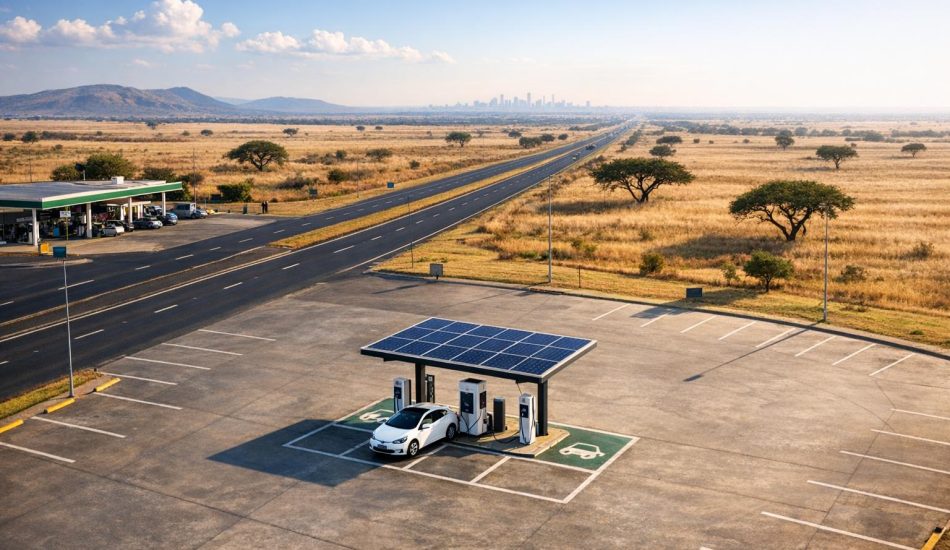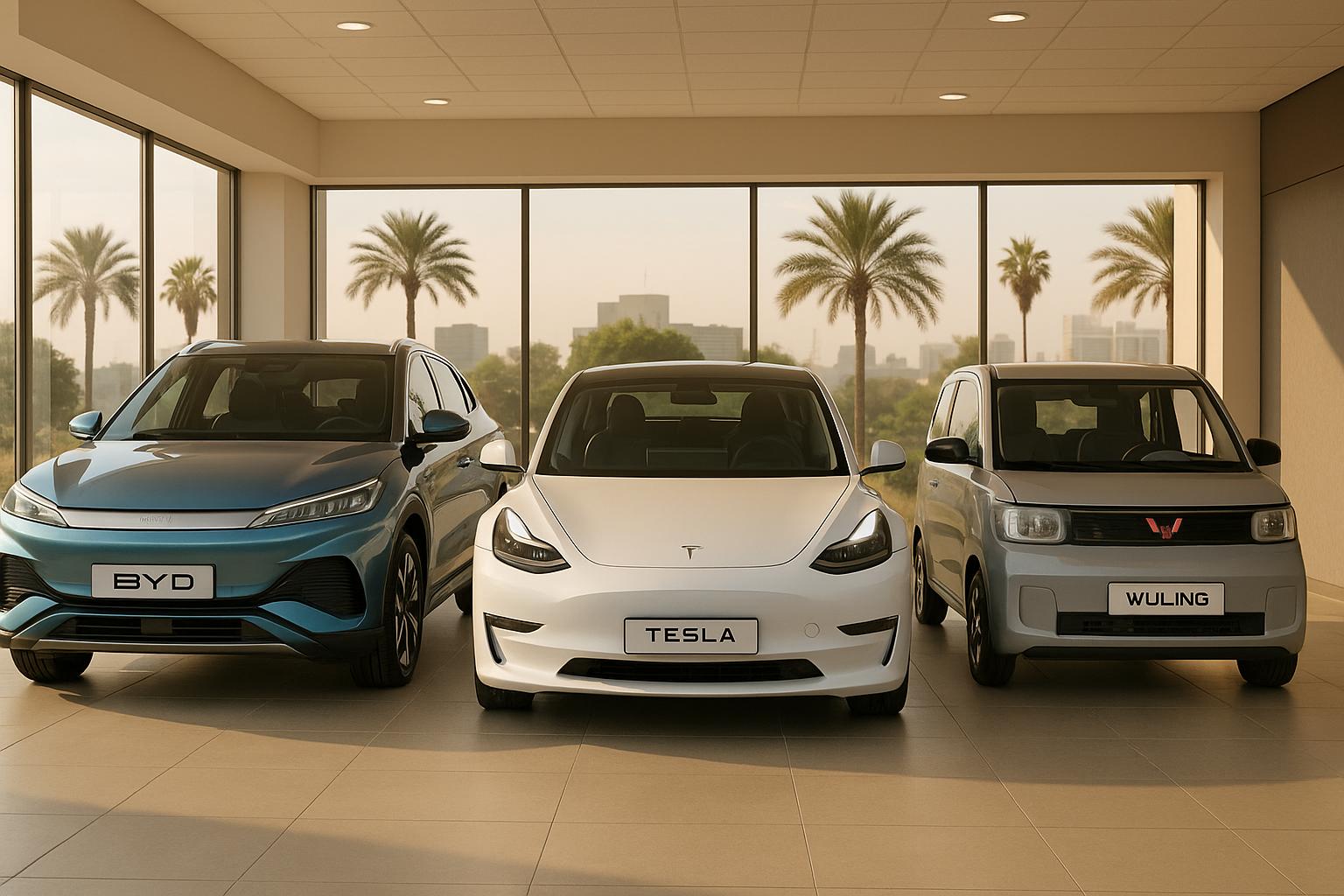
Africa’s electric vehicle (EV) market in 2025 is dominated by three key brands: BYD, Tesla, and Wuling. Each caters to different buyer needs, from affordability to premium features and practicality for local conditions. Here’s a quick breakdown:
- BYD: Known for budget-friendly models like the Yuan Pro ($10,880) and Dolphin Active ($11,800). Offers a mix of battery-electric and plug-in hybrid vehicles, making it suitable for areas with limited charging infrastructure. Focuses on reliable performance across diverse terrains.
- Tesla: Targets premium buyers with flagship models like the Model S, featuring an 840 km range. Challenges include high prices and limited charging networks, though its advanced technology appeals to luxury-focused customers.
- Wuling: Specializes in compact, durable EVs designed for city and rural use. Affordable and straightforward, Wuling prioritizes low maintenance and performance in high-temperature climates.
Each brand addresses Africa’s mobility challenges differently, aligning with varying budgets and infrastructure realities.
Quick Comparison
| Brand | Price Range | Key Features | Challenges |
|---|---|---|---|
| BYD | $10,880–$47,500 | Affordable, hybrid options, durable | Less global recognition |
| Tesla | Premium ($80,000+) | Cutting-edge tech, luxury models | High cost, limited infrastructure |
| Wuling | Budget-friendly | Compact, practical, low upkeep | Simpler tech, fewer dealerships |
These brands are shaping Africa’s EV market by offering solutions tailored to local needs, from affordability to advanced features.
Chinese EVs You Can Buy in Kenya – Africa EV Show
1. BYD
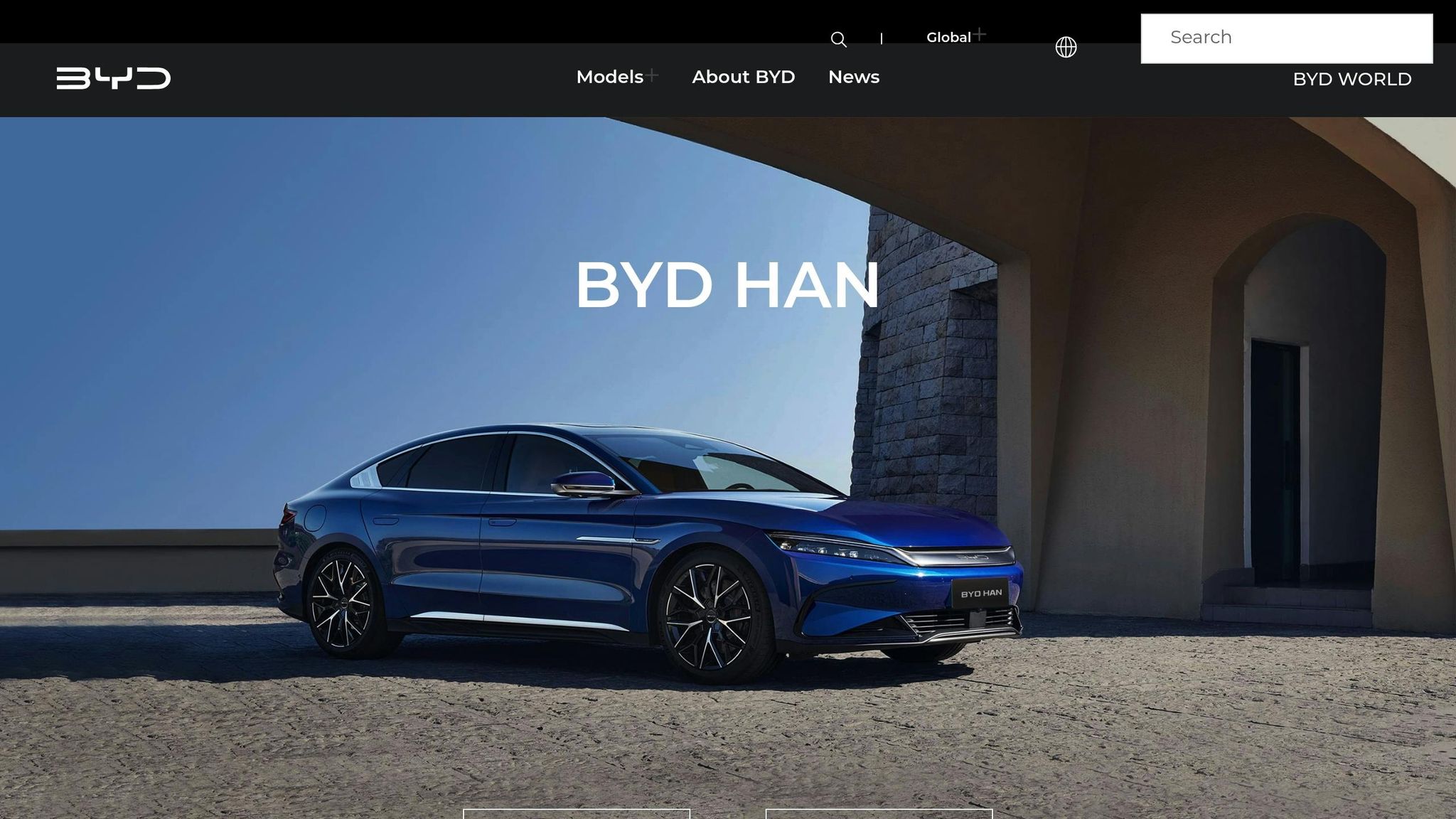
BYD has carved out a niche as Africa’s go-to premium electric vehicle (EV) brand, striking a balance between affordability and advanced features. By offering dependable battery technology at competitive prices, BYD aims to make electric mobility more accessible across the continent.
Pricing Strategy and Market Position
BYD’s lineup caters to a range of buyers, from budget-conscious to those seeking premium features. Their offerings include:
- Entry-level models: Yuan Pro ($10,880) and Dolphin Active ($11,800)
- Mid-range options: Qin Plus EV 100 kW ($14,180) and Song Plus EV ($18,680)
- Premium vehicles: Atto 3 2025 ($47,500) and Tang EV 2024 ($34,700)
By keeping most models priced under $22,500, BYD positions itself as a more affordable alternative to traditional automakers, all while delivering cutting-edge technology. This pricing strategy strengthens its appeal to a broad audience.
Performance and Local Adaptation
Designed with Africa’s diverse terrain in mind, BYD vehicles handle both city streets and rural roads with ease. The company’s vertical integration – spanning local battery production and CKD (Completely Knocked Down) assembly lines – helps minimize delivery times and reduce costs for African buyers.
In June 2025, BYD introduced plug-in hybrid models, including the Shark pickup, SEALION 6 crossover, and SEALION 7 SUV. These hybrids address the challenges posed by limited charging infrastructure and unreliable power supplies, providing a practical solution for many African regions.
"I think South Africa and the rest of Africa have a very big opportunity to leapfrog from ICE into renewable energy (cars)", said Steve Chang, BYD Auto South Africa’s general manager.
Support Services and Market Expansion
To build trust and ensure customer satisfaction, BYD is expanding its dealership network across East, Southern, and West Africa, including countries like Tanzania. This ensures that maintenance, spare parts, and support services are readily available.
BYD’s dual focus on Battery Electric Vehicles (BEVs) and Plug-in Hybrid Electric Vehicles (PHEVs) gives consumers the flexibility to choose vehicles that align with their needs. PHEVs, in particular, are a practical choice for areas where charging stations are scarce or electricity supply is inconsistent.
2. Tesla
Tesla is making strides in Africa’s premium EV market with its flagship Model S, boasting an impressive range of 840 kilometers. The vehicle is available through EV24.africa. However, the lack of widespread charging infrastructure across the continent presents significant challenges, even for luxury EVs.
The issue of charging infrastructure is particularly stark. According to Stellenbosch University:
"While a diesel minibus taxi takes only one minute to fill up with enough diesel to travel 750 kilometers, the fastest currently available electric minibus recharges at a mere 2km per minute with DC and 0.3km per minute with AC. The electric taxi’s range is also only 21 percent of the diesel equivalent."
Despite these hurdles, Tesla’s global reputation and cutting-edge technology continue to make it an attractive choice for premium buyers in Africa.
sbb-itb-99e19e3
3. Wuling
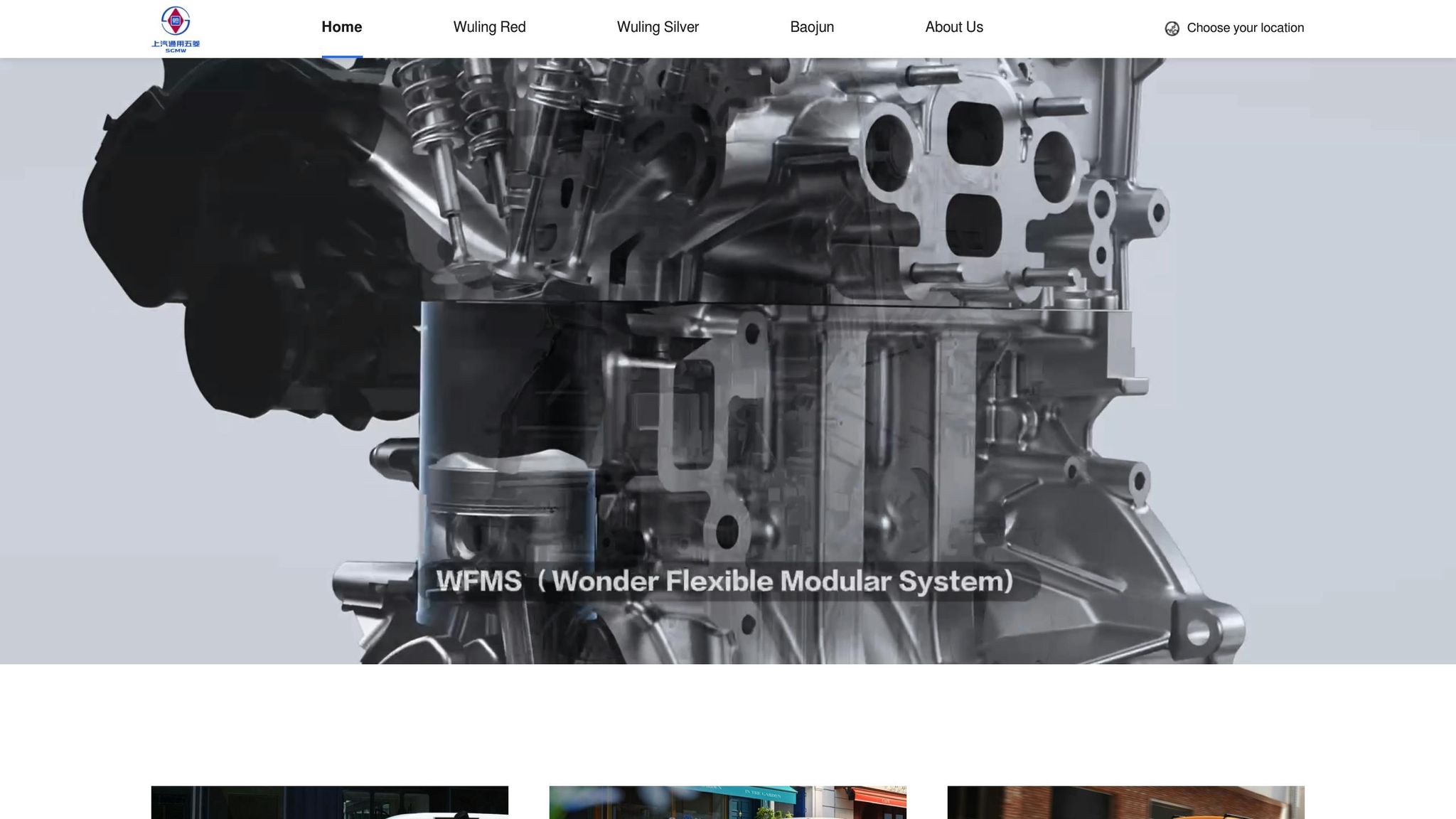
Wuling focuses on creating EVs tailored to handle Africa’s diverse road conditions. Their designs center on practical features that meet the challenges of both urban streets and rougher rural terrain.
Key highlights include a sturdy suspension system, a compact build for navigating tight spaces, and regenerative braking that enhances performance across different road types. These features ensure smooth handling on city roads while maintaining resilience on less developed paths.
Another standout is Wuling’s emphasis on durable battery technology. With efficient heat management systems in place, their EVs are designed to operate dependably even in high-temperature climates. This thoughtful engineering approach caters directly to the region’s need for reliable, locally-suited electric vehicles.
Brand Comparison: Strengths and Weaknesses
Every brand brings its own mix of advantages and challenges to the table.
| Brand | Strengths | Weaknesses |
|---|---|---|
| BYD | • Affordable pricing across various models • A wide range of vehicles, from compact cars to commercial options • Large-scale manufacturing that helps keep costs low |
• Less recognizable brand compared to premium competitors • Fewer partnerships for local infrastructure |
| Tesla | • Strong reputation for cutting-edge vehicle technology • Exclusive charging network in major urban areas • Reliable performance and quality in flagship models |
• Higher price tags, which can limit accessibility • Service centers concentrated in larger cities • Limited options for budget-conscious buyers |
| Wuling | • Practical designs tailored for everyday driving • Compact size, ideal for crowded cities • Focus on affordability and low upkeep costs |
• Smaller global footprint • Simpler technology compared to premium brands • Fewer dealerships in certain regions |
These comparisons highlight how each brand aligns with the specific needs of Africa’s evolving automotive market.
Price Positioning and Infrastructure
BYD focuses on the mid-range segment, Tesla caters to the premium market, and Wuling targets budget-conscious buyers. Tesla benefits from its dedicated fast-charging network in key cities, while BYD and Wuling rely on flexible charging options, which fit well with Africa’s developing EV infrastructure.
Local Adaptation and Total Cost of Ownership
Each brand takes a distinct approach to address regional demands. Wuling prioritizes simple, practical features suited for local conditions, BYD leans on flexible platforms, and Tesla sticks to its global specifications. When evaluating total ownership costs, Tesla’s higher upfront price is offset by long-term efficiency and strong resale value, while BYD and Wuling present more affordable initial options, each with its own maintenance considerations.
Technology Integration
Tesla leads with its advanced, integrated tech ecosystem, BYD offers reliable and well-rounded technology, and Wuling keeps things straightforward with basic, user-friendly features.
Conclusion
The analysis above sheds light on how different brands are addressing Africa’s unique electric vehicle (EV) needs. As we look toward 2025, the African EV market showcases a variety of approaches tailored to the continent’s mobility challenges. Brands like BYD, Tesla, and Wuling each focus on specific niches, adapting to the diverse conditions across the region.
The future of this market hinges on progress in areas like local manufacturing, charging infrastructure, and financing solutions. As these elements advance, competition among brands will likely spark new ideas and make sustainable transportation more accessible. This synergy between brand strategies and Africa’s needs underscores the growing importance of EVs in shaping the continent’s transportation future.
FAQs
What challenges does Tesla face in expanding its presence in Africa’s EV market?
Tesla faces several obstacles in expanding its presence in Africa’s electric vehicle (EV) market. One of the biggest challenges is the lack of charging infrastructure in many parts of the continent. Without enough charging stations, EV owners face significant inconveniences when it comes to powering their vehicles.
Another issue is the high import costs and taxes that make Tesla’s cars pricier compared to more affordable alternatives like BYD and Wuling. These financial barriers can push potential buyers toward cheaper options.
On top of that, there’s the question of whether Tesla’s vehicles are well-suited for local conditions. Many areas in Africa deal with rougher roads and unreliable electricity, which could mean Tesla needs to adjust its designs or offer extra support services. Addressing these challenges will be crucial if Tesla wants to establish a stronger presence in Africa.
How does BYD’s focus on local manufacturing and assembly help African consumers?
BYD’s focus on manufacturing and assembling vehicles locally brings a range of advantages for African consumers. By building cars closer to where they’re sold, production costs drop, which can make electric vehicles more budget-friendly for buyers. On top of that, this strategy supports job creation and boosts local economies by collaborating with regional suppliers and businesses.
Producing vehicles locally also means they can be designed to better suit the specific needs of African markets, such as adapting to local road conditions and climate. This makes the vehicles not only more practical but also more appealing to consumers in the region.
Why are Wuling’s compact EVs a good fit for Africa’s varied road conditions?
Wuling’s compact EVs stand out as practical and versatile vehicles, perfectly suited to Africa’s varied road conditions. Their compact size and efficient design make them ideal for maneuvering through bustling city streets and handling the challenges of rural roads with uneven surfaces.
What makes these vehicles even more appealing is their affordability and low maintenance costs – key considerations for many drivers across the continent. Built to last and adapt to different environments, they offer a reliable option for regions with diverse infrastructure and driving needs.


